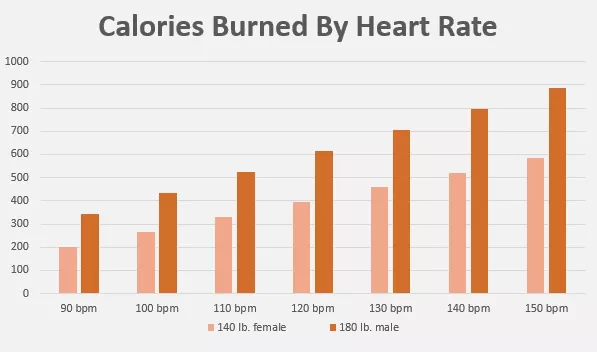Heart function is often measured by the ejection fraction (EF), which represents the percentage of blood the left ventricle pumps out with each contraction. A normal ejection fraction ranges from 55% to 70%. When the EF drops to 40% or below, it indicates heart failure or other cardiac conditions. Living with an EF of 40% requires careful management and lifestyle changes to maintain quality of life and longevity.
Causes of Reduced Heart Function
Several conditions can lead to a reduced ejection fraction. These include:
Coronary Artery Disease (CAD): Blockages in the coronary arteries can restrict blood flow to the heart muscle, weakening it over time.
Heart Attack: Damage from a heart attack can reduce the heart’s pumping efficiency.
Cardiomyopathy: This disease of the heart muscle can be caused by genetic factors, infections, or excessive alcohol consumption.
Hypertension: Long-term high blood pressure can strain the heart, leading to a decrease in function.
Valvular Heart Disease: Malfunctioning heart valves can disrupt normal blood flow, impacting heart function.
See Also: What Causes Vasospastic Angina
Symptoms And Diagnosis
Patients with a reduced ejection fraction may experience symptoms such as:
- Shortness of breath, especially during physical activity or while lying down.
- Fatigue and weakness.
- Swelling in the legs, ankles, and feet (edema).
- Rapid or irregular heartbeat.
- Persistent cough or wheezing.
- Diagnosis typically involves:
Echocardiogram: An ultrasound of the heart to measure EF and visualize heart function.
Electrocardiogram (ECG): Records the electrical activity of the heart.
Cardiac MRI or CT scan: Provides detailed images of the heart’s structure and function.
Blood tests: Assess markers of heart failure and other underlying conditions.
Living With 40 Percent Heart Function
Medical Management
Medications
Managing heart function at 40% often involves a combination of medications:
ACE Inhibitors/ARBs: Help relax blood vessels, making it easier for the heart to pump blood.
Beta-Blockers: Reduce heart rate and blood pressure, decreasing the heart’s workload.
Diuretics: Help reduce fluid buildup in the body, alleviating symptoms of edema.
Aldosterone Antagonists: Block the effects of aldosterone, a hormone that can worsen heart failure.
Digitalis: Helps the heart pump more efficiently.
Lifestyle Changes
Adopting heart-healthy habits is crucial:
Diet: Focus on a low-sodium, low-fat diet rich in fruits, vegetables, whole grains, and lean proteins.
Exercise: Regular, moderate exercise helps improve heart function and overall fitness.
Weight Management: Maintaining a healthy weight reduces strain on the heart.
Smoking Cessation: Smoking damages blood vessels and exacerbates heart disease.
Alcohol Moderation: Limit alcohol intake to prevent further damage to the heart.
Monitoring And Follow-Up
Regular follow-up appointments with a cardiologist are essential. Monitoring might include:
Echocardiograms: To track changes in heart function.
Blood Tests: To monitor for markers of heart failure and electrolyte levels.
Holter Monitor: A portable ECG device worn for 24-48 hours to detect abnormal heart rhythms.
see also: How Long Can A Person Live with Severe Aortic Stenosis
Advanced Treatments
For some patients, advanced treatments may be necessary:
Implantable Cardioverter Defibrillator (ICD): A device implanted in the chest to prevent sudden cardiac arrest by delivering shocks to correct abnormal rhythms.
Cardiac Resynchronization Therapy (CRT): Uses a special pacemaker to improve the timing of the heart’s contractions.
Left Ventricular Assist Device (LVAD): A mechanical pump that supports heart function in patients with severe heart failure.
Heart Transplant: In cases where other treatments are ineffective, a heart transplant may be considered.
Prognosis And Life Expectancy
The prognosis for patients with 40% heart function varies widely based on several factors:
Underlying Cause: Conditions like CAD or a heart attack may be managed effectively with medical and surgical interventions, improving prognosis.
Overall Health: Comorbidities such as diabetes, hypertension, and kidney disease can impact life expectancy.
Age: Younger patients tend to have better outcomes compared to older adults.
Adherence to Treatment: Patients who strictly follow medical advice, medication regimens, and lifestyle modifications tend to have better outcomes.
Quality of Life
Maintaining a good quality of life with reduced heart function involves managing symptoms and preventing complications. Strategies include:
Managing Fluid Intake: Limiting fluid intake to prevent fluid overload and edema.
Symptom Monitoring: Keeping track of symptoms and seeking medical advice if they worsen.
Mental Health Support: Counseling and support groups can help manage the emotional impact of living with heart failure.
Education: Understanding the condition and treatment options empowers patients to make informed decisions about their care.
Preventing Complications
Preventive measures are vital in managing heart function at 40%:
Vaccinations: Staying up to date with flu and pneumonia vaccines to prevent infections that can strain the heart.
Monitoring Blood Pressure: Keeping blood pressure under control to reduce stress on the heart.
Regular Exercise: Tailored exercise programs can improve cardiovascular health without overexerting the heart.
Medication Compliance: Adhering to prescribed medications and attending all medical appointments.
Conclusion
Living with 40% heart function requires a comprehensive approach that includes medical management, lifestyle modifications, and regular monitoring. With proper care and adherence to treatment plans, many patients can maintain a good quality of life and extend their life expectancy. It is crucial to work closely with healthcare providers to tailor a treatment plan that addresses individual needs and maximizes heart health.

